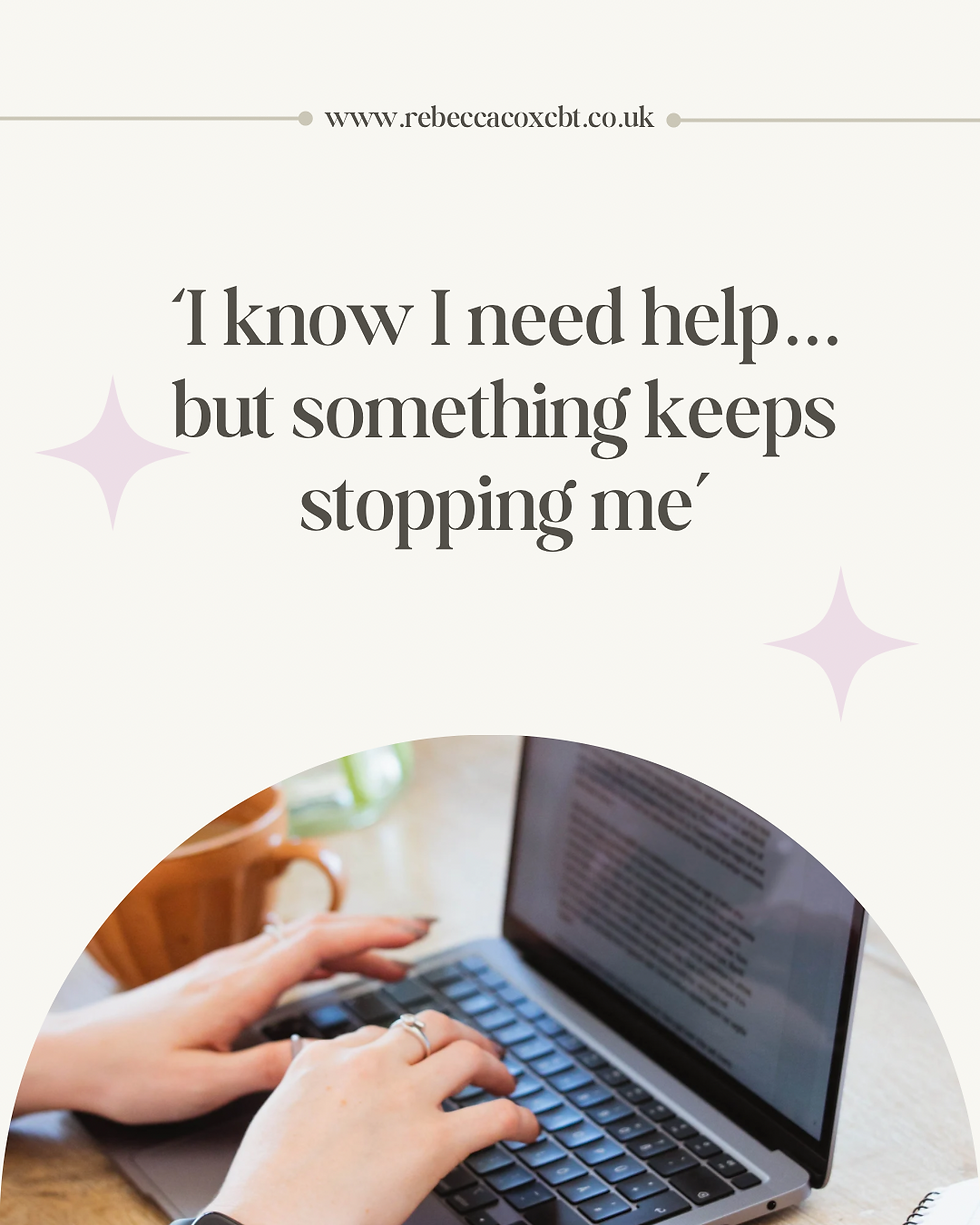Anxious About Starting CBT? What to Expect From Your First Appointment
- cbtbournemouth
- Jun 25, 2025
- 2 min read

Cognitive Behavioral Therapy (CBT) is a widely recognised and effective treatment for anxiety. If you have been considering therapy for anxiety in the UK, understanding what to expect in your first sessions coul help motivate you to get booked in and get started with the right support for your anxiety.
Here’s a step-by-step breakdown of the process:
1. Initial Welcome and Introduction
During your first CBT session, I will welcome you and introduce myself. This is a chance for you to get comfortable and ask questions or shared doubts or concerns you might have about starting CBT.
2. Discussion of Your Concerns
You will be invited to share your experiences with anxiety and how this is impacting you currently. I will likely ask some questions about your symptoms, triggers, and how the anxiety affects your daily life. This is an important step in helping me get a sene of how life is for you righ tnow and how you are impacted by the anxiety. I want to understand your unique situation and how what's motivating you to seek support right now.
3. Explanation of CBT
I will explain the principles of CBT, using an exmaple you have shared. We will discuss how CBT therapy works and what you can expect from the process.
4. Goal Setting
We will work together to identify specific goals you would like to achieve with the support of your CBT sessions. This may include reducing anxiety symptoms, developing coping strategies, overcoming avoidance or addressing particular situations that trigger your anxiety.
5. Assessment and Evaluation
We might complete specific questionnaires to gain an assessment of your current symptom level or discussions your mental health history. The goal is to create a tailored treatment plan for you which means something to you. CBT is not a set process. You should feel involved in your assessment and decision making. We will work together as a team to achieve your therapy goals.
6. Introduction to Techniques
You might be introduced to some initial CBT techniques or strategies, such as mood capturing or relaxation exercises. These tools can help you start managing anxiety right away.
7. Scheduling Future Sessions
At the end of your first appointments, we will discuss if you would like to book further appointments to work through the treatment plan we developed together. If you would, we will discuss the frequency of future appointments and how many appointments you might be likely to need. This will vary though depending on your goals and the severity of your symptoms currently. Active engagement and consistency are key in CBT, therefore, establishing a regular schedule is important for your progress.
8. Questions and Concerns
Finally, I will encourage you to ask any questions or express any concerns, doubts or fears, you may have about the therapy process and about starting CBT. I want you to feel heard, involved and supported.
Conclusion
Your first sessions of CBT for anxiety are designed to be a supportive and informative experience. By understanding what to expect, you can approach therapy with confidence and a clear sense of direction. Remember, the journey to managing anxiety is a collaborative effort between you and your therapist.
If you would like to start CBT sessions you can book online today.



Comments